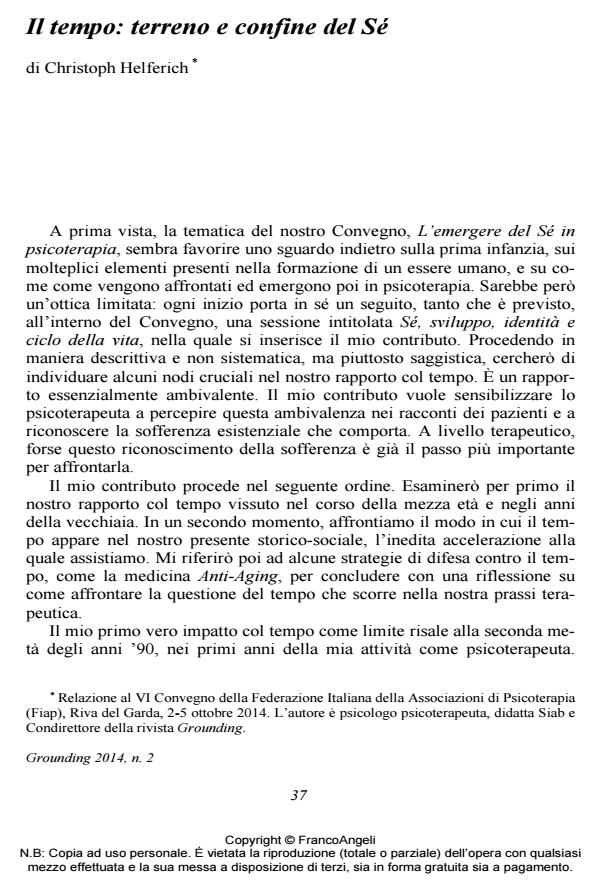Il tempo: terreno e confine del Sé
Journal title GROUNDING
Author/s Cristoph Helferich
Publishing Year 2015 Issue 2014/2
Language Italian Pages 9 P. 37-45 File size 51 KB
DOI 10.3280/GRO2014-002003
DOI is like a bar code for intellectual property: to have more infomation
click here
Below, you can see the article first page
If you want to buy this article in PDF format, you can do it, following the instructions to buy download credits

FrancoAngeli is member of Publishers International Linking Association, Inc (PILA), a not-for-profit association which run the CrossRef service enabling links to and from online scholarly content.
The lecture explores our ambivalent relation to time. The widespread anxiety about the passing away of time produces numerous defense meccanisms, among them the pressure for eternal youth, Anti-Aging-Medicine, or displacement of the existential problems on a somatic level. The analyst should accompany the client in his authentic quest for an authentic sense of life, which probably gains its unique value in front of its very finitude.
Keywords: Time, eternal youth, suffering, body, authenticity, sense
Cristoph Helferich, Il tempo: terreno e confine del Sé in "GROUNDING" 2/2014, pp 37-45, DOI: 10.3280/GRO2014-002003